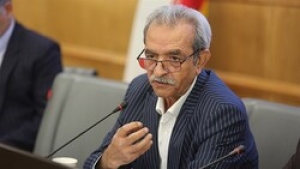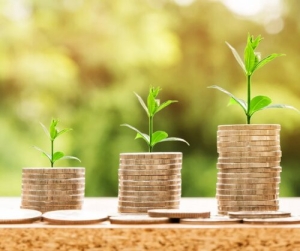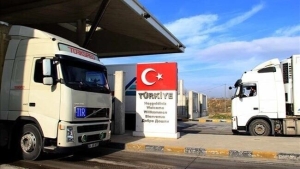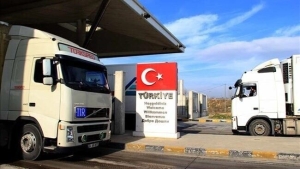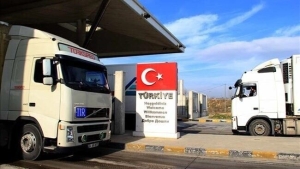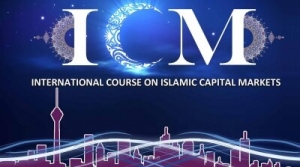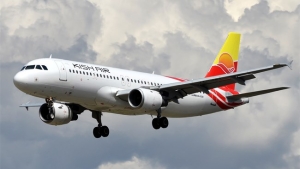Member Countries
ecocci
Industry sector in dire need of technological improvement: ICCIMA head
TEHRAN – Head of Iran Chamber of Commerce, Industries, Mines and Agriculture (ICCIMA) Gholam-Hossein Shafeie has said the country’s industrial sector is in urgent need of technological improvement and modernization, the ICCIMA portal reported.
Speaking in a meeting with the members of the Parliament Planning and Budget Committee on Saturday, Shafeie said that technological upgrading and modernization of machinery is a great need of the industry sector, which will practically face a dead end with the cancellation of the tax exemption for the import of machinery.
Referring to the challenges of the industrial sector in the country’s current economic conditions, the ICCIMA head said: “One of our important issues in the production and industry sector is the serious technology gap compared to global competitors. On the other hand, the depreciation of machinery has caused the cost of production to increase significantly and the conditions for competition to become even harder.”
Mentioning a decision for the cancellation of the tax exemption for the imports of industrial machinery, the official said that this issue has caused serious concerns for the country’s productive sector because if the importers of machinery are not exempted from paying tax it won’t be economically justifiable for them to continue to do so.
“Although there are discussions to amend this decision and some measures have also been taken, there is still a serious concern in this regard for the country's productive sector, and the parliament can play a very important role in this regard,” Shafeie added.
Referring to the possibility of the JCPOA talks reaching an agreement, the ICCIMA head underlined the necessity of having foresight in this regard and emphasized: “if an agreement is reached, the result for the country will be the increase of oil revenues; so, there is the concern that the same strategies as before will be followed and the generated revenues will not be allocated enough to the development of productive and infrastructure sectors.”
“The Planning and Budget Committee should take the necessary measures in this regard so that the mentioned capital is directed to the productive and infrastructure sectors,” he stressed.
Export of Uzbek textiles reached almost US$2 billion in seven months
According to the State Statistics Committee, in January-July 2022, the export of textile products from Uzbekistan was carried out in the amount of US$1.91 billion, which accounted for 17% of the total export deliveries. Compared to January-July 2021, it increased by 19.2%.
In the structure of exports of textile products, the main share is occupied by cotton yarn (51.3%), as well as finished knitwear and garments (25.1%).
In January-July 2022, more than 494 types of textile products were exported to 67 countries of the world.
The role of light industry in the economy of Uzbekistan has increased markedly: its share in GDP amounted to 8.8%, in the volume of industrial production - 14.8%, in the volume of production of non-food consumer goods - over 44%.
To date, over 500 thousand people work at the enterprises of the industry.
Russia remains one of the largest and most reliable partners for Uzbek textile workers.
Official statistics recorded that in seven months of this year, textile products worth US$698.3 million were shipped to the Russian Federation, with an increase of 35.6% compared to the same period last year.
Over the 5 years of work of the Uztekstilprom association, the number of Uzbek exporters in the Russian Federation has grown 1.7 times, exports - 2.7 times (up to 960 million dollars). Cooperation links brought together more than 400 manufacturers of yarn, fabrics and knitted fabrics; investments covered 44 enterprises in Russia and 31 enterprises in Uzbekistan.
Strong ties have been established with the Ministry of Industry and Trade of Russia, an agreement has been concluded with the government of Ivanovo Region.
According to official forecasts, export deliveries are expected to grow to US$7 billion by 2025.
Export of Uzbek textiles reached almost US$2 billion in seven months
According to the State Statistics Committee, in January-July 2022, the export of textile products from Uzbekistan was carried out in the amount of US$1.91 billion, which accounted for 17% of the total export deliveries. Compared to January-July 2021, it increased by 19.2%.
In the structure of exports of textile products, the main share is occupied by cotton yarn (51.3%), as well as finished knitwear and garments (25.1%).
In January-July 2022, more than 494 types of textile products were exported to 67 countries of the world.
The role of light industry in the economy of Uzbekistan has increased markedly: its share in GDP amounted to 8.8%, in the volume of industrial production - 14.8%, in the volume of production of non-food consumer goods - over 44%.
To date, over 500 thousand people work at the enterprises of the industry.
Russia remains one of the largest and most reliable partners for Uzbek textile workers.
Official statistics recorded that in seven months of this year, textile products worth US$698.3 million were shipped to the Russian Federation, with an increase of 35.6% compared to the same period last year.
Over the 5 years of work of the Uztekstilprom association, the number of Uzbek exporters in the Russian Federation has grown 1.7 times, exports - 2.7 times (up to 960 million dollars). Cooperation links brought together more than 400 manufacturers of yarn, fabrics and knitted fabrics; investments covered 44 enterprises in Russia and 31 enterprises in Uzbekistan.
Strong ties have been established with the Ministry of Industry and Trade of Russia, an agreement has been concluded with the government of Ivanovo Region.
According to official forecasts, export deliveries are expected to grow to US$7 billion by 2025.
Govt., private sector to collaborate on designing financing tools for knowledge-based firms
TEHRAN – The members of the Knowledge-based Businesses Committee of Iran Chamber of Commerce, Industries, Mines and Agriculture (ICCIMA) gathered on Wednesday to discuss ways of facilitating the activities of such businesses in the country.
Designing financing tools to support knowledge-based projects, designing indirect venture investment models, as well as training and empowering of knowledge-based companies were among the subjects discussed at the meeting, the ICCIMA portal reported.
Based on the decisions made in the ICCIMA meeting, the implementation of the above-mentioned measures is going to be pursued by the Iranian Confederation of Knowledge-Based Associations (ICKA) in collaboration with the Electronics Support Fund for Research and Development (ESFRD).
Speaking at the meeting, ESFRD Head Mohsen Naderi-Manesh said Ministry of Industry, Mining, and Trade is serious about directing the capital in the industry sector towards advanced and knowledge-based production and ESFRD is trying to make this happen through the capital market.
He mentioned some of the services that his fund is currently offering to various businesses including providing bank facilities and granting guarantees, and noted that ESFRD’s support is not limited only to knowledge-based companies and businesses that operate in the field of advanced industries can also benefit from the fund’s services and facilities.
Further in this gathering, Head of ICCIMA’s Knowledge-based Businesses Committee Afshin Kolahi praised ESFRD’s performance regarding the support of advanced industries, saying: “Some of the ICKA members, that are not knowledge-based but operate in the field of advanced industries, have been always deprived of receiving facilities and services and now ESFRD can solve this problem.”
We all agree on the framework of collaborations between the fund and knowledge-based firms, Kolahi said adding that business-related institutions and organizations are the best places for evaluating knowledge-based projects and companies to receive support from the fund.
“Therefore, they can collaborate with the fund and establish the required communication. In addition, the services and activities of ESFRD can be added to the consultations and services that are currently provided by ICKA,” he said.
Iran’s export to Turkey increases 56% in 7 months on year
TEHRAN - The value of Iran’s exports to neighboring Turkey increased by 56 percent to reach $2.145 billion in the first seven months of 2022, according to the figures recently released by the Turkish Statistical Institute.
As IRNA reported, Iran’s export to Turkey was $1.37 billion in the first seven months of the past year.
The trade between Iran and Turkey increased by 33 percent to $3.847 billion, up from $2.877 billion during the same period a year earlier.
Based on the mentioned data, Iran’s imports from the country also marked a 13-percent rise to hit $1.702 billion during the January-July period, from $1.507 billion the same time span in 2021.
Increasing non-oil exports to the neighboring countries is one of the major plans that the Iranian government has been pursuing in recent years.
During a webinar, held in March, on trade relations between Iran and Turkey, which was held through cooperation between Tehran Chamber of Commerce, Industries, Mines and Agriculture (TCCIMA) and Istanbul Chamber of Commerce (ICOC), and attended by officials from both chambers and a group of entrepreneurs, ways to develop economic relations between the two countries and some problems in this due were examined.
In this virtual conference, which was attended by more than 250 entrepreneurs from Iran and Turkey, the opportunities for cooperation between the two countries were examined and the two sides emphasized the development of cooperation.
Addressing the conference, Nihat Alayoglu, the secretary-general of Istanbul Chamber of Commerce, referring to the political, economic and cultural similarities between Iran and Turkey, said: "The two countries have long-standing relations dating back more than 400 years, and more than 500 kilometers of common border, as well as several trade agreements with each other, in particular, the preferential trade agreement, which was concluded in 2015, is very important for both countries.”
He added that the value of trade between Iran and Turkey has increased from $1.2 billion in 2001 to about $5.6 billion in 2021. Of this amount, $2.7 billion is allocated to Turkish exports to Iran and $2.8 billion is related to Iran's exports to Turkey. Machinery and equipment are among the top exports of Turkey to Iran, and mainly materials such as copper and plastic are imported from Iran.
Noting that Turkey accounts for seven percent of Iran's $39-billion imports, he added: "Our goal is to increase Turkish exports to Iran to $10 billion, and it is obvious that the two countries' chambers of commerce have a role to play in increasing trade cooperation."
Bahman Eshqi, the secretary-general of Tehran Chamber of Commerce, for his part put emphasis on the significance of expanding economic ties between Iran and Turkey, and said, “Turkey is one of the gateways of Iran's economy to Europe, and Iran is one of the gateways connecting Turkey to the Silk Road and the lands of the Commonwealth of Independent States (CIS) members. Iran can also be the main gateway for Turkey to join India and the subcontinent.”
Emphasizing that economic cooperation between the two countries is a necessity, Eshqi continued: "Compromise between the two nations has been strong for the last three centuries, and although at times there have been competitions between the two countries, Iran-Turkey cooperation is still developing."
Iran’s export to Turkey increases 56% in 7 months on year
TEHRAN - The value of Iran’s exports to neighboring Turkey increased by 56 percent to reach $2.145 billion in the first seven months of 2022, according to the figures recently released by the Turkish Statistical Institute.
As IRNA reported, Iran’s export to Turkey was $1.37 billion in the first seven months of the past year.
The trade between Iran and Turkey increased by 33 percent to $3.847 billion, up from $2.877 billion during the same period a year earlier.
Based on the mentioned data, Iran’s imports from the country also marked a 13-percent rise to hit $1.702 billion during the January-July period, from $1.507 billion the same time span in 2021.
Increasing non-oil exports to the neighboring countries is one of the major plans that the Iranian government has been pursuing in recent years.
During a webinar, held in March, on trade relations between Iran and Turkey, which was held through cooperation between Tehran Chamber of Commerce, Industries, Mines and Agriculture (TCCIMA) and Istanbul Chamber of Commerce (ICOC), and attended by officials from both chambers and a group of entrepreneurs, ways to develop economic relations between the two countries and some problems in this due were examined.
In this virtual conference, which was attended by more than 250 entrepreneurs from Iran and Turkey, the opportunities for cooperation between the two countries were examined and the two sides emphasized the development of cooperation.
Addressing the conference, Nihat Alayoglu, the secretary-general of Istanbul Chamber of Commerce, referring to the political, economic and cultural similarities between Iran and Turkey, said: "The two countries have long-standing relations dating back more than 400 years, and more than 500 kilometers of common border, as well as several trade agreements with each other, in particular, the preferential trade agreement, which was concluded in 2015, is very important for both countries.”
He added that the value of trade between Iran and Turkey has increased from $1.2 billion in 2001 to about $5.6 billion in 2021. Of this amount, $2.7 billion is allocated to Turkish exports to Iran and $2.8 billion is related to Iran's exports to Turkey. Machinery and equipment are among the top exports of Turkey to Iran, and mainly materials such as copper and plastic are imported from Iran.
Noting that Turkey accounts for seven percent of Iran's $39-billion imports, he added: "Our goal is to increase Turkish exports to Iran to $10 billion, and it is obvious that the two countries' chambers of commerce have a role to play in increasing trade cooperation."
Bahman Eshqi, the secretary-general of Tehran Chamber of Commerce, for his part put emphasis on the significance of expanding economic ties between Iran and Turkey, and said, “Turkey is one of the gateways of Iran's economy to Europe, and Iran is one of the gateways connecting Turkey to the Silk Road and the lands of the Commonwealth of Independent States (CIS) members. Iran can also be the main gateway for Turkey to join India and the subcontinent.”
Emphasizing that economic cooperation between the two countries is a necessity, Eshqi continued: "Compromise between the two nations has been strong for the last three centuries, and although at times there have been competitions between the two countries, Iran-Turkey cooperation is still developing."
Iran’s export to Turkey increases 56% in 7 months on year
TEHRAN - The value of Iran’s exports to neighboring Turkey increased by 56 percent to reach $2.145 billion in the first seven months of 2022, according to the figures recently released by the Turkish Statistical Institute.
As IRNA reported, Iran’s export to Turkey was $1.37 billion in the first seven months of the past year.
The trade between Iran and Turkey increased by 33 percent to $3.847 billion, up from $2.877 billion during the same period a year earlier.
Based on the mentioned data, Iran’s imports from the country also marked a 13-percent rise to hit $1.702 billion during the January-July period, from $1.507 billion the same time span in 2021.
Increasing non-oil exports to the neighboring countries is one of the major plans that the Iranian government has been pursuing in recent years.
During a webinar, held in March, on trade relations between Iran and Turkey, which was held through cooperation between Tehran Chamber of Commerce, Industries, Mines and Agriculture (TCCIMA) and Istanbul Chamber of Commerce (ICOC), and attended by officials from both chambers and a group of entrepreneurs, ways to develop economic relations between the two countries and some problems in this due were examined.
In this virtual conference, which was attended by more than 250 entrepreneurs from Iran and Turkey, the opportunities for cooperation between the two countries were examined and the two sides emphasized the development of cooperation.
Addressing the conference, Nihat Alayoglu, the secretary-general of Istanbul Chamber of Commerce, referring to the political, economic and cultural similarities between Iran and Turkey, said: "The two countries have long-standing relations dating back more than 400 years, and more than 500 kilometers of common border, as well as several trade agreements with each other, in particular, the preferential trade agreement, which was concluded in 2015, is very important for both countries.”
He added that the value of trade between Iran and Turkey has increased from $1.2 billion in 2001 to about $5.6 billion in 2021. Of this amount, $2.7 billion is allocated to Turkish exports to Iran and $2.8 billion is related to Iran's exports to Turkey. Machinery and equipment are among the top exports of Turkey to Iran, and mainly materials such as copper and plastic are imported from Iran.
Noting that Turkey accounts for seven percent of Iran's $39-billion imports, he added: "Our goal is to increase Turkish exports to Iran to $10 billion, and it is obvious that the two countries' chambers of commerce have a role to play in increasing trade cooperation."
Bahman Eshqi, the secretary-general of Tehran Chamber of Commerce, for his part put emphasis on the significance of expanding economic ties between Iran and Turkey, and said, “Turkey is one of the gateways of Iran's economy to Europe, and Iran is one of the gateways connecting Turkey to the Silk Road and the lands of the Commonwealth of Independent States (CIS) members. Iran can also be the main gateway for Turkey to join India and the subcontinent.”
Emphasizing that economic cooperation between the two countries is a necessity, Eshqi continued: "Compromise between the two nations has been strong for the last three centuries, and although at times there have been competitions between the two countries, Iran-Turkey cooperation is still developing."
Tehran to host 14th International Forum on Islamic Capital Market in early Nov.
TEHRAN - The 14th International Forum on Islamic Capital Market (ICM) is going to be held in Tehran during November 6-7, Vice Chairman of Iran Securities and Exchange Organization (SEO) Bahador Bijani said.
The event is organized by SEO with the aim of promoting Islamic financial instruments, Bijani said.
The main topics that are going to be covered in the event include the perspective of the Islamic capital market in the digital era, fintech in the Islamic capital market, digitalization of the Islamic capital market, and alternative investments in the Islamic capital market, according to the official.
Bijani noted that each of the mentioned topics will be examined in detail in separate sections.
For example, in the fintech section, topics such as fintech opportunities and challenges in the Islamic capital market, Islamic fintech and regulatory framework, and artificial intelligence and Islamic fintech will be discussed, he explained.
Digitalization of the Islamic capital market will also be explored in the form of topics such as the use of blockchain and smart contracts in the Islamic capital market, digital currency, investment and the future of the Islamic capital market, tokenization of assets (financial and real) through the Islamic capital market and Mataverse and Islamic capital market.
As for the alternative investments in the Islamic capital market, the official said: “in this section, socially responsible investment (SRI), environmental, social and governance (ESG) approaches, corporate governance principles in the Islamic capital market, and new models of financing by investment funds as well as Exchangeable Trade Funds (ETF) are among the topics that will be discussed.”
Due to the coronavirus pandemic, SEO held the previous two editions of the ICM virtually, but since the severity of the disease has decreased recently, this year the forum is planned to be held physically.
THE OIC - 2025 PROGRAMME OF ACTION
Iranian airline launches flights to Afghanistan
Kish Air, an Iranian semi-state airline, on Friday commenced its flights to Afghanistan, with the first flight landing in southern Kandahar province, Afghanistan’s Pajhwok news reported.
In this regard a ceremony was held at Ahmad Shah Baba Airport in Kandahar city, in which Deputy Director of Afghanistan Aviation Authority, the Director of Foreign Affairs in Kandahar, the Iranian Consul General and a number of other officials were present.
Ali Reza Hajizadeh, Iranian Consul General in Kandahar, said the Kish Air would have flights from Iran to Kabul and Kandahar twice a week to provide people with more travel facilities.
He said that Iran expects other airlines to start their flights to Afghanistan in order to further expand economic relations between the two nations.











